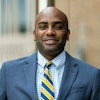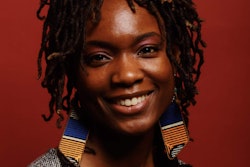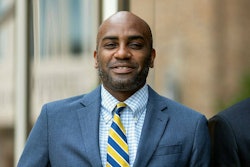Hampton Coach’s Civil Rights Lawsuit Thrown Out
LUBBOCK, Texas — A judge has dismissed a college basketball coach’s civil rights lawsuit, ruling she, her husband and an assistant failed to establish that racial bias was a factor in their 1998 arrests.
Hampton University women’s coach Patricia Bibbs and the others sued the city, several police officers and some University Medical Center employees after the three African Americans were arrested.
Police had said Bibbs, her husband, Ezell, and assistant Vanetta Kelso appeared to fit the description of a group suspected of running a con operation. Police later released the three, and the mayor apologized for the arrests.
The Bibbses and Kelso, however, filed a $30 million lawsuit, accusing Lubbock police of racism and wrongful arrest.
U.S. District Judge Sam Cummings ruled last month that Bibbs failed to show the arrests were racially motivated.
“The victim [of the alleged con] had identified two Black women, so the police would not be looking for White women,” Cummings wrote. “The victim positively identified plaintiff Vanetta Kelso, and stated that plaintiff Patricia Bibbs possibly fit the description of the other Black woman.”
The plaintiffs will appeal, said their attorney, Faye Hardy-Lucas.
State Auditors Come to Grambling’s Aid; Accreditation Visit Looming
GRAMBLING, La. — Beset by computer problems, changes in personnel and years of financial problems, Grambling State University has at last finished the year-end financial report it is supposed to provide the state annually.
The report was submitted last month after a team assembled by the University of Louisiana System, which governs Grambling and seven other universities in Louisiana, was dispatched to the institution by system president Bobby Jindal.
The financial experts from across the university system had been on campus since October. The team was sent after state Legislative Auditor Dan Kyle pulled auditors from the university, saying the school’s records were in such disarray the auditors were unable to do their jobs. Four months of records were missing and key financial staff members had left earlier this year.
The records were due in November and state Commissioner of Administration Mark Drennen recently said the state would have to prepare its own year-end finance report without the Grambling figures. The law requires Louisiana’s report to be done by Dec. 31.
Grambling State faces its biggest test early next year when the school is evaluated for re-accreditation by the Southern Association of Colleges and Schools. The nearly 100-year-old school was first accredited in 1949, and has been re-accredited every decade since. Accreditation is key to attracting students, faculty, certain federal funding and now even some state dollars.
Gordon Pugh, a Baton Rouge lawyer heading another University of Louisiana System committee assisting Grambling, said recently that he believes the university will be ready for the Feb. 7-10 visit from the accreditation team.
Joplin Man Convicted in Death of Black Student Who Touched His Girlfriend
JOPLIN, Mo. — A man accused of fatally stabbing a Black college student for touching his girlfriend was convicted last month of first-degree murder.
Gary Black, 44, was charged with the Oct. 2, 1998, stabbing of Jason Johnson, 28, a student at Missouri Southern State College. Prosecutors called it a hate crime and are seeking the death penalty in the trial’s punishment phase, which was set to resume last month.
Black’s girlfriend said Black stabbed Johnson because he thought the man had flirted with her in a convenience store.
After the conviction, Black told Judge Jon Dermott that he wanted to remain in jail while the jury hears testimony and gives its recommended punishment. The panel can choose death or life in prison without parole.
Jurors rejected Black’s claim that he stabbed Johnson in the neck in self-defense.
Prosecutors said Black followed a pickup truck in which Johnson rode for more than a mile after leaving the convenience store. After catching up with Johnson, Black stabbed him.
“He deliberated every inch of the way because in his mind, a Black man had the audacity to touch his girlfriend,” Assistant Prosecutor Doug Crandall told jurors in closing arguments.
Former San Jose State Professor Settles Over Allegedly Racist Tenure Denial
SAN JOSE, Calif. — A former San Jose State University professor who accused the school’s African American studies department of denying her tenure because she is not Black has won more than $206,000 in an out-of-court settlement.
In exchange, Cynthia Mahabir, a native of Trinidad and of Indo-Caribbean descent, has agreed to drop her reverse discrimination suit against the university, and to give up any claim to a teaching job there.
Mahabir, now a lecturer at Laney College in Oakland, taught for eight years at San Jose State. She alleged that department chairman Cobie Harris, who is Black, told a faculty meeting in December 1994 that “African American studies has no room for an Indian.”
Mahabir said the alleged incident left her with a “a hollow feeling inside. … He really hit at the core of my sense of my identity.”
Harris could not be reached for comment. However, he has denied the allegations claimed in the suit, which was filed in 1997 in Santa Clara County Superior Court.
University officials contend Mahabir was denied tenure only because she did not measure up as a teacher and scholar, even though she had received recommendations for permanent faculty status from three peer review committees.
A review of Mahabir’s scholarship showed that while she was an assistant professor at San Jose State, she had published only three articles and a book review, said Jessica Frazier of the California State University general counsel’s office, who represented San Jose State.
Frazier also noted that although the alleged remark about her Indian ancestry was a “linchpin” of Mahabir’s lawsuit, she did not report it until six months later, after she had been rejected for tenure in the spring of 1995.
University President Robert Caret, who made the final decision to deny Mahabir permanent faculty status, said in a prepared statement that “the university is confident that tenure was not denied for any improper reasons.”
The university agreed to the settlement — which includes payment of $100,000 in fees to Mahabir’s attorney, Jody LeWitter — to save the costs of any further litigation, Caret said.
“This has been a major struggle in my life, but I can now move on with my career and find a job in a more hospitable place,” Mahabir said.
University of South Carolina Trustees Call for Confederate Flag’s Removal
COLUMBIA, S.C. — The University of South Carolina’s board of trustees has approved a resolution calling for the removal of the Confederate flag from the Statehouse dome.
The resolution — that passed without a dissenting vote, according to board Chairman William C. Hubbard — was made public as at least two more groups changed or canceled meeting plans to honor the NAACP’s boycott of the state.
The resolution says displaying the flag on the Statehouse “creates a negative impact on the national and international reputation of the university” and the perception created by the flag hurts the board’s “efforts to provide a nurturing atmosphere.”
The university has been in the crossfire of the National Association for the Advancement of Colored People tourism boycott, announced last summer. Some NAACP members have suggested asking Black athletes not to attend South Carolina colleges and universities. The Columbia Urban League dropped its co-sponsorship of the National Black Family Summit when the university said it would not move the planned event from Myrtle Beach.
University President John Palms said then the school could not become involved in a political debate. After the board’s announcement, however, he said: “Any future activity would have to be considered in light of the action of the board.”
The resolution offered no specific idea for how to accomplish the flag’s removal and is “simply our encouragement to the General Assembly to resolve the issue.”
“The university has to take a leadership role and that’s a very encouraging sign,” Urban League President James T. McLawhorn said.
To honor the boycott, the Episcopal Diocese of Upper South Carolina will cut next year’s two-day convention in half. Meetings will be held Feb. 5 on the grounds of Trinity Episcopal Cathedral in Columbia. Local church members are being asked to open their homes to delegates who need to stay overnight.
Also, the Anderson Minority Business and Professional Association said it will cancel its 2000 Black Business Expo, which draws about 150 vendors from the Southeast to the Anderson County Civic Center each year.
Anti-Affirmative Action Group Takes Exception to University of Virginia Report
RICHMOND, Va. — When a report issued last January by an anti-affirmative action group criticized the University of Virginia’s admissions policies, the school defended itself by saying the report’s numbers didn’t add up.
So the Center for Equal Opportunity compiled a new study addressing the criticism by accounting for the university’s preference for in-state students and children of alumni.
That study, which was released last month, makes even bolder claims about the effects of the institution’s policy of giving Black applicants an edge in admissions.
The report, which looks at the high school class rank and SAT scores of the class entering this fall, claims a Black applicant was 111 times as likely to be admitted as a comparably qualified White applicant. The previous study, which used only SAT scores and analyzed the class entering in 1996, said a Black applicant was 45 times as likely to be admitted.
“They made a big deal about suggesting it wasn’t race, it was residency,” said Roger Clegg, an attorney with the conservative think-tank. “We wanted to show that was not true. And we did.”
While Virginia criticized the initial report’s methodology, it did review its admissions policies and dropped a scoring system that explicitly accounted for race. A subcommittee of the school’s Board of Visitors said it feared the system was illegal in light of recent court decisions.
But the school said it would continue to informally account for race in admissions.
Calling the university’s response “schizophrenic,” Clegg said: “If all they have done is to end the use of blatantly awarding points on the basis of race, but instead they’ve adopted a system of more surreptitiously considering race, it may be that there is just as much discrimination going on now as there was in the recent past.”
University officials have justified using race as one factor in admissions as a way to bring diversity to the student body. They point to the school’s 87 percent graduation rate for Blacks — the highest such rate for any public university in the country — as proof that all admitted students belong there.
The initial study claimed the university had the largest gap between Black and White applicants offered admission of any university in the state. Other public universities had smaller gaps or no gap at all. At two Virginia universities — Virginia Commonwealth and Old Dominion — Whites appeared to have a better chance of admission.
The new study only examined the University of Virginia and did not revisit data from the state’s other public universities.
Central State Board Chair to Step Down
COLUMBUS, OHIO — Frederick Ransier III, chairman of Central State University Board of Trustees, says he will step down as chairman next June because of time demands of a new political position. He will soon be appointed to Columbus City Council.
Ransier will fill out the remaining city council term of Michael Coleman, who was elected Columbus mayor in November and had been scheduled to serve on city council through 2001. Ransier says he will remain on the CSU board — his term as trustee extends to 2005 — but will relinquish his chairman’s duties in six months.
Ransier, 50, earned his undergraduate degree from Central State and went on to graduate from the Ohio State University law school. In 1996, he was part of an all-new, nine-member CSU board appointed by Gov. George Voinovich, who ousted the former Central State trustees because he was dissatisfied with their response to recurring financial problems. Ransier was immediately elected chairman of the new board and has helped revitalize Ohio’s only historically Black public university.
In one of his most pivotal moves, Ransier helped bring his fellow CSU and OSU law school alumnus — John Garland — to Central State to serve as president. Since 1996, Central State has earned praise from auditors, legislators, and state and federal officials for its improvements in financial oversight, academic accreditation issues and student loan monitoring.
Ransier says he does not anticipate any time conflicts between his new position and his CSU duties, since trustees are meeting less often than they were in the board’s first years, when CSU faced financial and political problems. “Everything is done in a planned fashion now,” Ransier says of CSU. “Every day is no longer a trial by fire.”
Ransier was one of five candidates interviewed by Columbus City Council Democrats for the unexpired term. Council President Matt Habash said the council members decided unanimously that Ransier was the most qualified applicant. The council is expected to vote to appoint Ransier in early January.
Campus Unrest Results in Suspensions, Arrest at Stillman
TUSCALOOSA, Ala. — Stillman College students threw food in the cafeteria, set trash cans on fire and overturned a security vehicle during a disturbance that resulted in at least 10 suspensions and one arrest.
The fracas began when students, angry about the quality of the school cafeteria, got into a food fight last month. A second food fight erupted the next day and security was called. A campus guard left the cafeteria to find his cart overturned and a garbage can ablaze, Tuscaloosa police spokesman David Hartin said.
At least one other fire was set in a trash can, and someone knocked over a computer printer in a building that was also damaged by obscene graffiti, Hartin said. Officers were called to break up a crowd of about 40 people, he said.
Deputy Fire Chief Marvin Tant said firefighters were called to campus once on the second day of the incident during a “pretty serious disturbance” and again the next day, when a false alarm was reported.
Students began receiving letters notifying them of one-year suspensions the following week, and officers returned to campus to arrest a student accused of failing to disperse over the weekend.
Hartin identified him as Juan Tremayne Thomas, 19, of Tuscaloosa.
One student who received a letter notifying him of a one-year suspension said he had nothing to do with the disturbance.
“I wasn’t even on campus,” said Daymar King, 24. “They don’t know who did it. They’re just picking names and putting them on a list.”
Officials at the historically Black institution did not immediately return telephone calls seeking comment.
Marshall Fraternity Suspended for Racial Slurs
HUNTINGTON, W.Va. — A Marshall University fraternity has been placed on probationary suspension because of complaints of racism.
A female student reported that Kappa Alpha members made racial slurs at a party in November.
Marshall’s Judicial Affairs Board held a hearing on the complaint Dec. 3. Donnalee Cockrille, dean of student affairs, notified the fraternity last month that it had been placed on probationary suspension.
The suspension means Kappa Alpha cannot participate in university activities such as Greek Week and intramurals. The fraternity also must make a written apology to the student who made the complaint.
In a letter to the fraternity, Cockrille listed the requirements it must meet in order to be taken off probation. Members must attend and sponsor workshops dealing with race relations. The fraternity cannot have any alcohol in its house until the suspension is lifted. The group’s recruiting also will be restricted.
If the fraternity doesn’t meet all requirements, the chapter no longer will be recognized as a Marshall student organization, Cockrille said.
The fraternity has said the two members responsible for the racial slurs have been kicked out.
A review of the fraternity’s compliance is set for December 2000.
Reports Show Women, Minorities Paid Less at Some Kansas Colleges
WICHITA, Kan. — Reports from three of the state’s universities show they are paying female professors less than their male counterparts, and one is paying minorities less than their White colleagues.
At Fort Hays State University, women faculty make an average of 7.3 percent less than men, even when certain factors — such as whether they have doctorates, how much experience they have and how much they have published — are taken into account, says Fort Hays Provost Larry Gould.
Wichita State and Kansas State found that women make 0.2 percent to 0.5 percent less than men. Kansas State also found that minority professors are paid 0.1 less than their White counterparts.
Wichita State, Kansas State and Fort Hays State universities gave the reports on salary discrepancies to the state Board of Regents last month. The board planned to review the reports at its meeting later in the month in Hutchinson.
Kathy Rupp, associate director of academic affairs for the Board of Regents, attributes most of the salary differences to performance, specialty areas and special assignments. Fort Hays State, which found the greatest gender discrepancy, found no evidence the salary differences are a result of systematic discrimination against women, Gould says.
All six of the state’s universities plan to investigate possible gender and racial biases. Rupp says the schools will look at differences in class loads, research equipment, office space, appointments to committees and the way faculty are mentored.
Massachusetts Teaching Programs Could Face Sanctions
BOSTON — A special education commission has approved a plan that would allow the state to sanction college teaching programs if less than 80 percent of their graduates fail the state’s teacher test.
Commission chairman Peter Nessen says the goal is to come up with a plan to provide better teachers each year, not maintain their numbers.
“We’re looking for quality teachers, and we’re not going to compromise on that,” says Nessen, a member of the state Board of Higher Education and chairman of the Joint Commission of Educator Preparation. “The one thing we won’t compromise on is the ability of the teacher standing before a classroom in this state.”
The proposal needs the approval of the state boards of education and higher education. It would give teacher programs three years to bring their pass rate to 80 percent before facing a range of sanctions, including loss of accreditation.
The Boston Herald said some college officials fear many programs will be stripped of accreditation because the 80 percent standard is so far beyond their reach. On a test in June, just six of 55 certified programs reached the 80 percent pass rate, and the overall pass rate from a test in October was 53 percent.
If in three years programs fail to reach the 80 percent pass rate, they can be labeled “low performing,” and stripped of accreditation and lose federal funding. Sanctions can be lifted if the programs reach the 80 percent mark in the fourth year.
Stephen E. Gorrie, president of the Massachusetts Teachers Association, says he is concerned that programs labeled “low performing” could be wiped out by the loss of federal money and potential students.
“We have to be careful we’re not setting up a system where programs are eliminated or sanctioned on the basis of a single test score,” he says.
Hispanic Students, Teacher Push for Cultural Center at Missouri
COLUMBIA, Mo. — Hispanic faculty and staff at the University of Missouri-Columbia are pushing for a cultural center to recruit more Hispanic students and keep them on campus once they arrive.
Nancy Olivares, president of the Hispanic American Leadership Organization, says the center would be important to other Hispanic students: “It really bothers me not to see as many Hispanic faces on campus as there could be.”
The junior was invited this fall to speak to minority scholarship recipients involved in a retention program. Most students were Black, she says, and she recognized only one Hispanic woman from Kansas City.
Political science professor Patrick Peritore and his wife, Karina Galve-Peritore, put together a proposal for the cultural center they’ve already dubbed Casa de las Americas. They expect nothing close to the $2.4 million Black Culture Center that opened in September, Peritore says, adding that many Hispanic students are the first in their families to attend college. Students need “culturally sensitive advisement and TLC,” he says.
Charles Schroeder, vice chancellor for student affairs, says he recognizes the growing Hispanic population in Missouri and wants to raise enrollment. He’s reviewing potential sites for a center, but said administrators won’t settle for just any space.
The proposal also calls for revising Missouri’s Latin American studies minor, says Richard Schwartz, dean of the College of Arts and Science.
© Copyright 2005 by DiverseEducation.com















